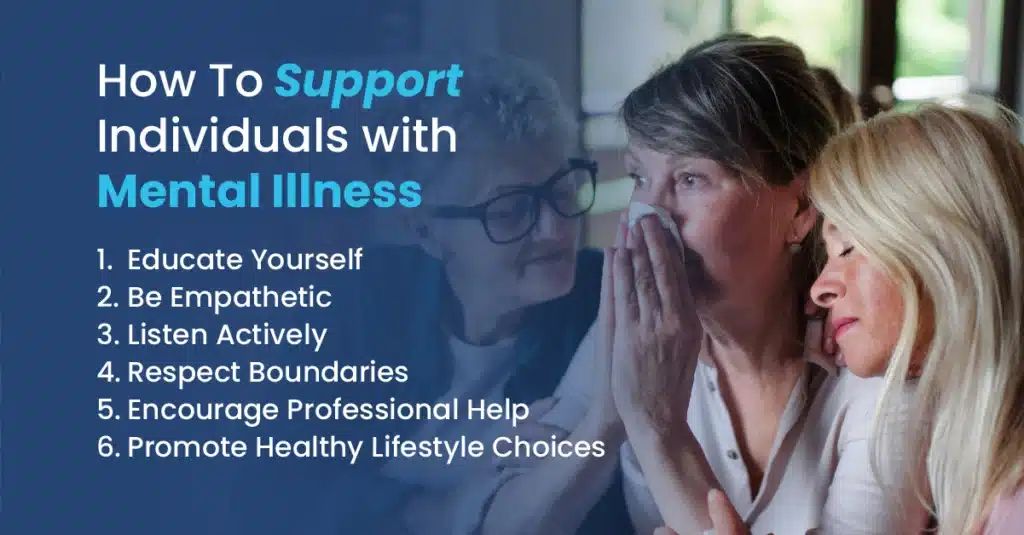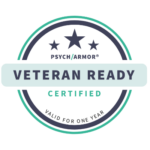Mythbusting Mental Health Assumptions
There are many myths surrounding mental health, such as the false belief that struggling with mental health is a sign of weakness or the misconception that only certain groups of people are affected.
These myths contribute to harmful stereotypes that can have negative consequences for millions of people worldwide who face mental health challenges. By debunking these misconceptions, we can promote greater understanding and compassion for those who are dealing with mental health issues.
Key Takeaways
Breaking mental health myths is about correcting misinformation and promoting mental well-being as an integral part of overall health. Here’s what you need to know:
- Mental health myths perpetuate stigma and hinder understanding; debunking them is crucial for fostering empathy and support.
- Challenging mental health myths involves recognizing that mental illnesses are real, common, and not indicative of personal weakness.
- Dispelling misconceptions about mental health promotes open dialogue, encourages seeking help, and contributes to a more compassionate and informed society.
Contact The Haven Detox-South Florida at (561) 328-8627 for personalized mental health care fostering long-term healing.

Understanding Mental Health Illnesses
Mental health illnesses, also known as mental disorders or psychiatric disorders, refer to a wide range of conditions that affect an individual’s thinking, feeling, behavior, or mood.
Mental health illnesses are diverse and can include disorders such as depression, anxiety, schizophrenia, bipolar disorder, addiction, and many others. They can arise from biological, genetic, psychological, and environmental factors.
Impact of Mental Illnesses
At the individual level, mental illnesses exert a profound influence on various aspects of life. Emotionally, individuals or adolescents may grapple with persistent feelings of sadness, anxiety, or joy, depending on the specific disorder.
Cognitive functions can be affected, leading to difficulties in concentration, decision-making, and memory. Behavioral changes, such as social withdrawal, altered sleep patterns, and shifts in appetite, are common manifestations.
Interpersonal relationships may be strained, and maintaining connections can become challenging. Physical health may also be impacted, contributing to issues like sleep disturbances, fatigue, and changes in appetite.
Furthermore, occupational and academic functioning may suffer, affecting productivity and overall success.
Mental Health Myths and Society
The consequences of mental health myths extend beyond individual experiences to shape societal attitudes and behaviors. Stigmatization and discrimination may emerge, leading those with mental health conditions to feel ashamed or reluctant to seek assistance.
Such misconceptions can erect barriers to treatment, contributing to delayed or inadequate care. Additionally, the fear of judgment may induce isolation, strain relationships, and perpetuate underreporting and underdiagnosis of mental health issues.
Significance of Debunking Mental Health Myths
Debunking mental health myths is crucial for several reasons. Common misconceptions and stigmas surrounding mental health can contribute to discrimination, prejudice, and social exclusion. By dispelling myths, society can foster a more compassionate and understanding attitude towards young adults with mental health conditions.
Debunking myths also encourage open conversations about mental health, promotes awareness, and helps break down barriers to seeking proper treatment.
Common Mental Health Myths
There are several common myths and misconceptions surrounding mental health. It’s important to debunk these myths to promote understanding and reduce stigma.
Here are some common mental health myths:
Myth 1: Mental Illness is Not Real Illness
One pervasive misconception surrounding mental health is the belief that mental illnesses are not genuine medical conditions. In reality, mental health issues are as real and tangible as physical ailments.
They often involve complex interactions between genetics, brain chemistry, and environmental factors. Research suggests that dismissing them as mere figments of imagination can lead to delayed or inadequate treatment, perpetuating unnecessary suffering for those affected.
Myth 2: People with Mental Illness Are Violent
Another common myth perpetuates the stereotype that individuals with mental health issues are inherently violent. The vast majority of people grappling with mental health challenges are nonviolent and pose no threat to others.
This stereotype not only stigmatizes those with mental illnesses but also hinders their social integration and support.
Myth 3: Mental Illness Makes People Weak
Equating mental health struggles with weakness is a harmful misconception that contributes to the stigma surrounding these conditions. Mental health challenges are not a sign of personal weakness; they are complex conditions that can affect anyone, regardless of their strength or resilience.
Addressing this myth is crucial in fostering a compassionate and understanding society that encourages young people to seek help without fear of judgment.
Myth 4: Mental Illness is a Life Sentence
Contrary to the belief that mental health issues are insurmountable, many individuals can and do recover with appropriate treatment and support. Viewing mental health challenges as a life sentence not only discourages seeking help but also undermines the resilience and potential for growth that many people with mental illnesses possess.
Individuals or youth can lead fulfilling lives and contribute meaningfully to their communities with timely intervention and proper care. Dispelling these myths is vital to creating a more empathetic and informed society.
How To Support Individuals With Mental Illness
Supporting individuals with mental illness requires empathy, understanding, and patience.
Here are some guidelines for supporting individuals with mental health issues, communicating about mental health, offering support to loved ones, and breaking the stigma:
Educate Yourself
Learn about the specific mental health condition your family member or friend is facing. Understand common symptoms, mental health services, and potential challenges.
Be Empathetic and Non-Judgmental
Show understanding and compassion without passing judgment. Avoid making assumptions or blaming the person for their condition.
Listen Actively
Allow them to share their feelings and experiences without interruption. Validate their emotions and let them know you are there for them.
Respect Boundaries
Recognize when they need space or time alone. Respect their decisions regarding treatment and recovery.
Encourage Professional Help
Suggest seeking mental health care from medical professionals. Offer assistance in finding suitable therapists or counselors to treat mental health symptoms.
Promote Healthy Lifestyle Choices
Encourage regular exercise, a balanced diet, and sufficient sleep. Help create a supportive environment that fosters well-being.
The Do’s and Don’ts When Talking About Mental Health
Discussing mental health with sensitivity and understanding is crucial to breaking down stigma and providing support.
Here are some do’s and don’ts when talking about mental health:
Do’s:
- Use Person-First Language: Put the person before their condition. For example, say “a person with schizophrenia” instead of “a schizophrenic.” This helps in reducing stigma.
- Ask Open-Ended Questions: Encourage conversation by asking open-ended questions. This allows the person to express themselves more freely.
- Respect Privacy: Mental health is a personal matter. Respect the person’s privacy, and don’t pressure them to share more than they are comfortable with.
- Offer Support: Let the person or employer know you are there for them and willing to provide support. Offer practical help if needed.
Don’t:
- Stigmatizing Language: Avoid using stigmatizing language or derogatory terms when discussing mental health disorders. This helps create a more supportive and understanding environment.
- Unsolicited Advice: While support is essential, offering unsolicited advice can be perceived as dismissive. Instead, ask if they would like advice or lend a listening ear.
- False Assumptions: Don’t make assumptions about a person’s experience or the cause of their common mental health problems. Everyone’s journey is unique.
- Gossip or Share Confidential Information: Respect the confidentiality of the conversation. Avoid gossiping about someone’s mental health, and don’t share their personal information without permission.
Frequently Asked Questions (FAQ)
Does poor mental health affect our day-to-day life?
Poor mental health disorders, like anxiety and depression, impact daily life. Studies report that it contributes to violence, panic attacks, violent crimes, mood swings, increased heart disease, self-harm, and social isolation. Prevention through mental health treatment, lifestyle changes, and self-care can help to prevent mental health problems.
What are some common myths about mental health?
The most common myths about mental health include:
- Mental disorders are rare.
- Only “crazy” people seek therapy.
- Mental health issues are a sign of weakness.
- Children don’t experience mental health problems.
- Medication is the only treatment for mental illness.
Dispelling these myths promotes understanding and destigmatizes mental health challenges.
Prioritize Your Mental Wellness With The Haven Detox-South Florida
Nourish your mental well-being with The Haven Detox-South Florida, where awareness meets action, and effective recovery becomes a reality.
Our mental health services are designed to comprehensively and holistically tackle mental health struggles. Our therapists create personalized coping strategies to empower individuals to overcome challenges.
It is time to make the change. Contact us at (561) 328-8627 today and embrace the transformation that awaits.








